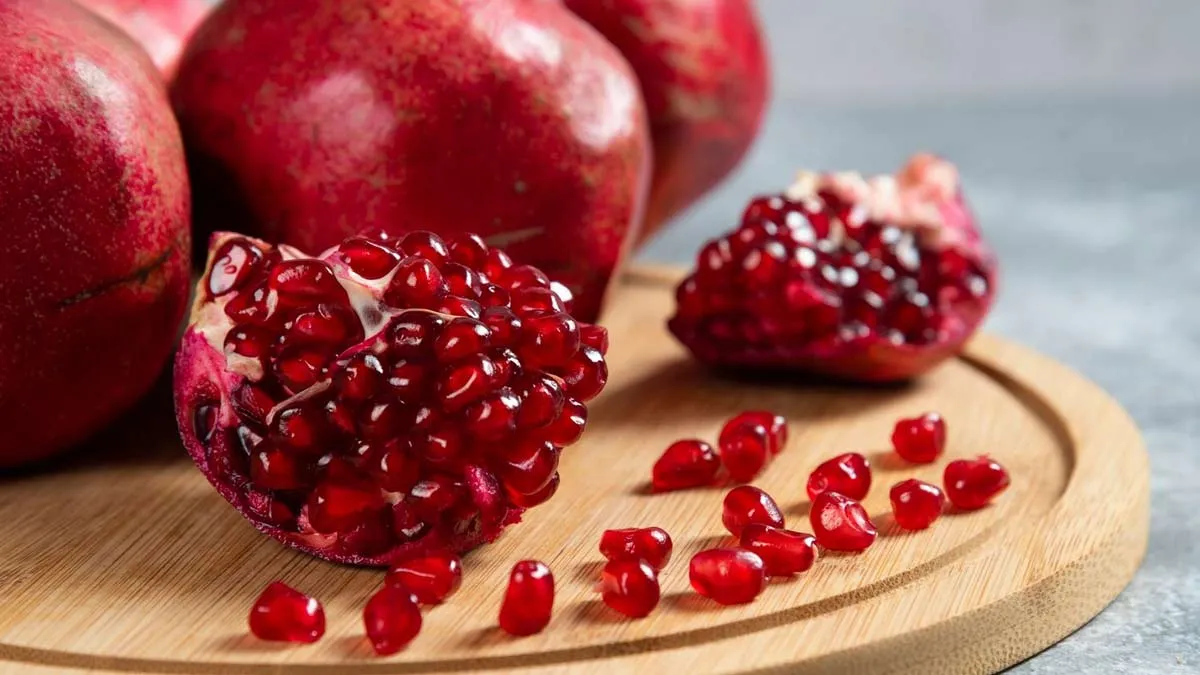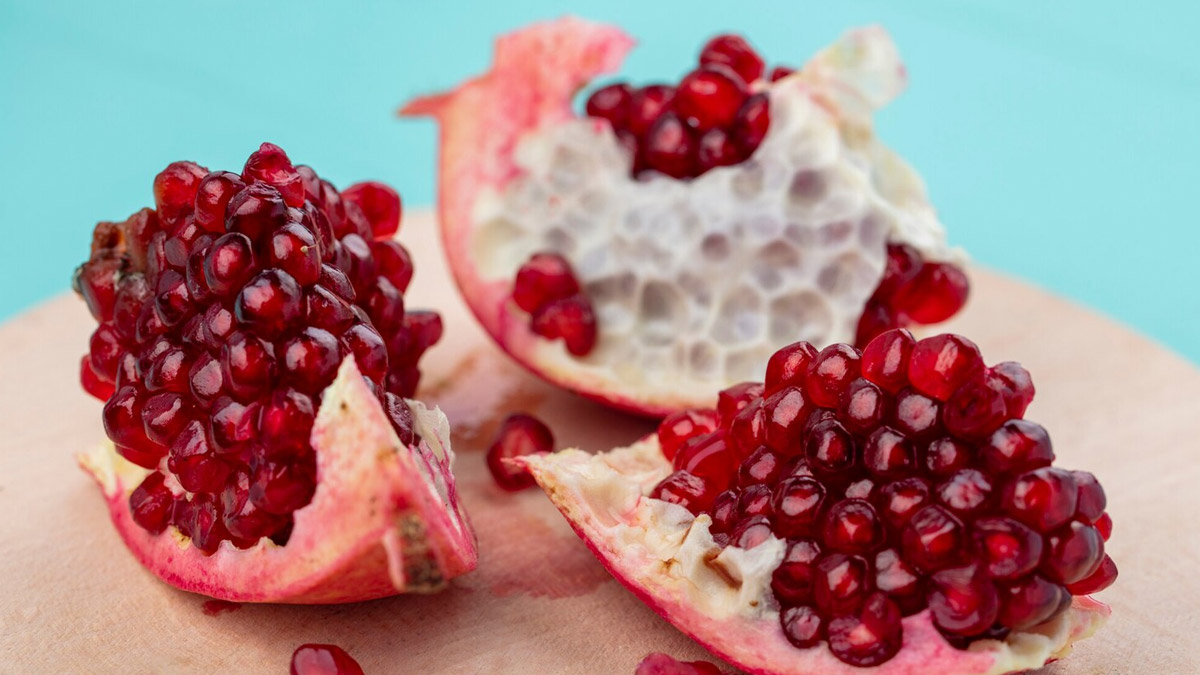
When it comes to our brain health, foods rich in omega-3 fatty acids, antioxidants, and vitamins are generally considered best. Out of the wide variety of foods that come under these categories, berries are said to be one of the healthiest, mostly due to their antioxidant-rich properties.
Table of Content:-
However, in the world of superfoods, we often take for granted one particular fruit that experts and researchers highly recommend for brain health: pomegranate. With dementia, Alzheimer’s disease, and cognitive decline becoming increasing concerns worldwide, science is exploring how pomegranate may reduce the risk.
Also Read: Pomegranate Can Be Good for Hair: Try These 7 Ways to Transform Your Hair Care Routine
Nutrient Profile Of Pomegranate

Pomegranate is packed with nutrients that make it a powerhouse for overall health. It contains:
- Polyphenols, strong antioxidants that protect against cell damage.
- Vitamin C supports immunity and tissue repair.
- Vitamin K, folate, and potassium are important for blood flow and cell function.
- Fibre helps maintain gut health, which is closely linked to brain function.
This unique combination has made scientists curious about pomegranate’s role in maintaining a healthy brain. And here's all you need to know about various findings.
How Pomegranate Supports Brain Health

Antioxidant-rich properties
The brain is particularly vulnerable to oxidative stress, a condition where free radicals damage brain cells over time. This stress is strongly linked to neurodegenerative diseases such as Alzheimer’s and Parkinson’s. Research shows that antioxidants like polyphenols in pomegranate can cross the blood-brain barrier, meaning they can directly reach and protect brain cells. Punicalagins, found only in pomegranates, are especially powerful in reducing inflammation and oxidative damage, both of which are major drivers of cognitive decline.
Memory-boosting benefits
Several studies have looked at how pomegranate affects memory and cognitive performance. A study of 80 people with mild cognitive impairment, published in the Journal of Alzheimer’s Disease, found that those who took 5 drops of pomegranate seed oil daily along with a Mediterranean diet showed significant improvements after one year – better overall cognition, memory, and executive function – compared to those who only followed the diet.
Anti-inflammatory benefits
Chronic inflammation is another key factor behind brain ageing and disorders like Alzheimer’s. Pomegranate’s bioactive compounds have strong anti-inflammatory effects, which may help lower the risk of long-term brain damage.
Animal studies have shown that pomegranate extracts can reduce inflammation in brain tissue and improve learning ability. More human trials are needed, but the evidence so far is promising.
Better mood
Research also points to a link between pomegranate and mood regulation. Some studies suggest that antioxidants in pomegranate may help reduce anxiety and depression symptoms by lowering stress hormones and improving blood flow to the brain. Since mental health and brain health are closely related, this could be another reason to add pomegranate to your diet.
How To Include Pomegranate In Your Diet

If you want to boost your brain health naturally, pomegranate can be added in simple, delicious ways:
- Eat the seeds, also called arils, as a snack, or add them to salads, yoghurt, or oatmeal.
- Drink fresh pomegranate juice (unsweetened) for a concentrated dose of antioxidants.
- Add pomegranate extract or supplements, but consult your doctor before starting.
- Stay consistent, as regular consumption may offer long-term protective effects for your brain.
Conclusion
Pomegranate is more than just a colourful fruit; it’s a nutrient-dense food that may play an important role in protecting the brain, enhancing memory, and reducing the risk of cognitive decline. While more large-scale human studies are needed, current research shows promising benefits.
Also watch this video
How we keep this article up to date:
We work with experts and keep a close eye on the latest in health and wellness. Whenever there is a new research or helpful information, we update our articles with accurate and useful advice.
Current Version